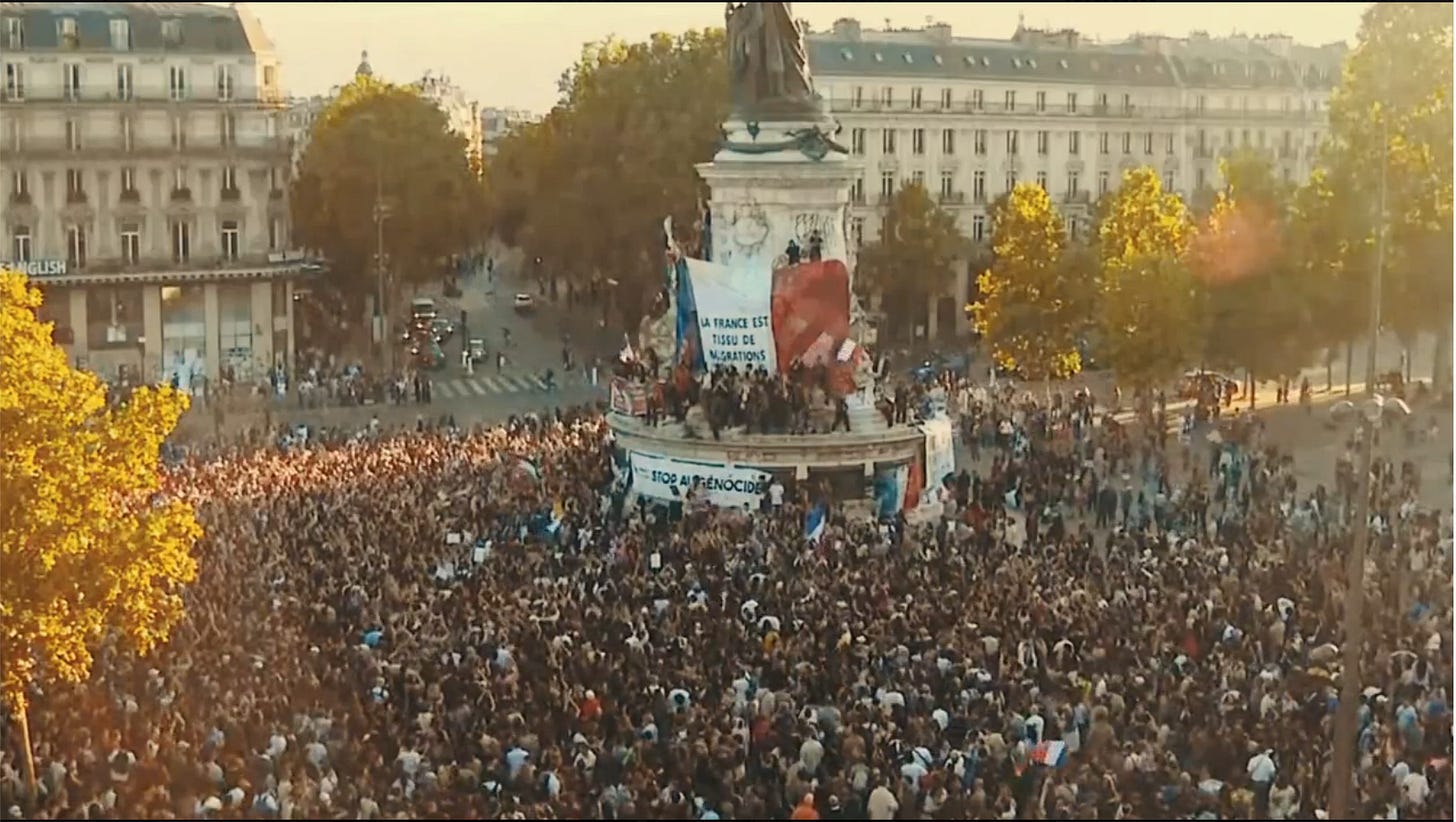After far right defeat, what comes next for France?
Though Le Pen's party was predicted to come first and aiming for a majority, the left-wing coalition delivered a shock result at first place, followed by Macron's centrists. But now the work begins.
Did Macron’s gamble pay off? That’s the question people are asking this morning after absorbing the shock news that Marine Le Pen’s far-right National Rally was driven into third place by an electoral pact between his centrists and a left-wing coalition called The New Popular Front. If Macron’s intention was simply to stave off Le Pen’s momentum following her victory in the European Parliament election, it has worked - for now. But if his gamble was that the left and right would fall apart leading people back to his centrists, that did not happen. While the Macronists did much better than expected, they have lost the relative parliamentary majority they had until now. It all depends on how altruistic you think Macron is. Was his gamble to save himself, or the republic?
The worst-case scenario of having a far-right prime minister who could have used the vagaries of the fifth republic’s constitution to wrest power away from the president has been averted. But the center and left will now have to enter negotiations about forming a governing coalition, and this is not something France is used to. The fifth republic was specifically designed to prevent hung parliaments, and the legislature is almost always controlled by the president’s party. We will now enter a period known as ‘cohabitation’, where the presidency and the parliament are run by rival political factions. But we still don’t know who will be running the parliament.
The New Popular Front, named after the original popular front which was an attempt to stave off fascism ahead of World War II, is a motley crew. It was quickly cobbled together following Macron’s shock decision to call a snap election following his party’s defeat in the EU Parliament election in early June. It combines the center-left Socialist Party and Green Party with two far-left parties, Jean-Luc Mélenchon’s France Unbowed and the Communist Party. Following the result, it was Mélenchon - who in many ways is just as hostile toward the EU as Le Pen - who came out first to accept the victory. “The president must bow and admit this defeat without trying to circumvent it,” he said said. “No subterfuge, arrangement or combination would be acceptable,” that did not hand over power to the left. Behaving as if he had won an outright majority, Mélenchon said the new government would not compromise and would apply “nothing but our manifesto”, which includes scrapping Macron’s hard-fought changes to the retirement system. But then the centrist Raphaël Glucksmann came out and said pretty much the exact opposite, saying the New Popular Front needs to “talk, debate and change political culture.”
Macron, who has characterised the far left as being just as dangerous as the far right, will most likely not let his party enter a coalition with Mélenchon’s France Unbowed party. Some in the center left have said the same. So that means that in order to form a government, the New Popular Front needs to break apart, with the centrist elements joining with Macron. 289 seats are needed to form a majority in the French Parliament. The New Popular Front won 189, 49 more than they had before. Macron’s Ensemble won 159 seats, a decrease of 86. Le Pen’s National Rally won 142 seats, an increase of 53. The center right Les Republicains, which has effectively collapsed, got 39 seats, a decrease of 25.
Prime Minister Gabriel Attal, from Macron’s party, announced last night he will offer his resignation to the president, but it is unclear if Macron will accept. He may keep him in place to lead a caretaker government while negotiations take place, especially considering that the Paris Olympics are about to start. He could even decide to appoint a ‘caretaker government’ which would be in place longer term but would not propose any major policies.
For the moment, Paris and Brussels are breathing a sigh of relief. But this is far from over. The RN still had a huge increase in seats, their largest in any French government since the fascist collaborationist government during World War II. Discontent over the way that the center and left united to lock the far right out of power could drive Le Pen’s support higher as we get toward the next presidential election in 2027. That is the big prize she is eyeing, and as she said last night, “The tide continues to rise…our victory is only postponed.”




